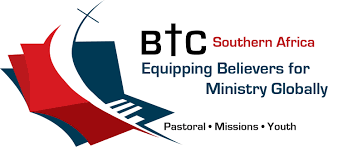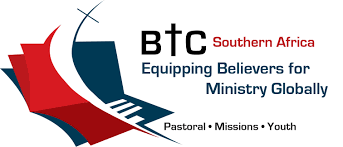In the realm of theological education, the Bachelor of Theology (BTh) degree stands as a beacon of knowledge, enlightenment, and spiritual growth. This comprehensive guide will walk you through the intricacies of the BTh program, shedding light on its significance, curriculum, and the manifold benefits it offers to both aspiring clergy members and seekers of profound theological wisdom.
Read Also: Theological Seminary Courses: Requirements & More
AFDA Courses Requirements – Your Guide to AFDA’s Program
UFH Courses and Requirements – Explore University of Fort Hare Programs
What is the Bachelor of Theology studies?

The Bachelor of Theology (BTh) is not just another academic pursuit; it’s a transformative journey into the heart of theological disciplines. This undergraduate degree spans a duration of three to five years and caters to individuals with aspirations of ordination for ministry within a church, denomination, or parachurch organization. However, its appeal extends far beyond the confines of the pulpit, making it an attractive option for anyone eager to go deeper into the realms of the Bible, theology, and Christian
Unpacking the Core Curriculum
At the core of every BTh program lies a curriculum designed to equip students with a profound understanding of theological foundations. Here’s a glimpse into the essential areas covered:
1. Biblical Studies
Central to the BTh curriculum are courses dedicated to the Old and New Testaments. These courses go into the profound narratives, teachings, and interpretations contained within the Bible. Furthermore, hermeneutics, the art of Scripture interpretation, is explored, enabling students to grasp the nuanced meanings embedded in the sacred texts.
2. Systematic Theology
Systematic theology takes center stage as students embark on an exploration of the fundamental doctrines that underpin Christianity. Topics like the Trinity, salvation, and the afterlife are dissected and analyzed, providing a comprehensive grasp of these critical aspects of the faith.
3. Church History
Understanding the evolution of Christianity is essential to appreciate its contemporary significance. BTh students move into the annals of church history, tracing the development of the Christian faith from its early roots to its multifaceted expressions in the present day.
4. Practical Theology
Preparation for real-world ministry is a key component of the BTh program. Students engage in courses that focus on ministry, preaching, counseling, and the practical aspects of applying theological knowledge within a community context.
Beyond the Core: Elective Courses
While the core curriculum forms the backbone of the BTh degree, students often have the opportunity to tailor their education to their specific interests. Elective courses in areas like ethics, philosophy, and world religions provide a broader perspective and a well-rounded theological education.
The Benefits of Pursuing a BTh Degree
The Bachelor of Theology degree offers a wealth of benefits that extend far beyond the academic realm. Here are some compelling reasons to consider embarking on this educational journey:
1. Deeper Understanding of the Bible, Theology, and Christianity
A BTh degree equips you with the tools to unlock the depths of the Bible, comprehend intricate theological concepts, and develop a profound connection with the Christian faith. It’s a journey of enlightenment and spiritual growth.
2. Development of Critical Thinking and Communication Skills
Theological study is not merely about absorbing information; it’s about critically analyzing complex ideas and effectively communicating them. These skills are invaluable in various professional and personal contexts.
3. Preparation for a Career in Ministry or Religious Vocations
If you aspire to serve as a religious leader, pastor, or counselor, a BTh degree is your gateway to a fulfilling career in ministry. It provides the foundational knowledge and practical skills needed to lead and inspire a congregation.
4. Broadened Understanding of World Religions and Cultures
In an increasingly interconnected world, a BTh degree offers insights into the beliefs and practices of different faiths. This cross-cultural understanding fosters tolerance, empathy, and a global perspective.
5. Enhanced Personal and Spiritual Development
Beyond academia and career prospects, the BTh journey is a transformative experience that nurtures personal growth and deepens one’s spiritual connection.
Embarking on Your BTh Journey
If the Bachelor of Theology degree beckons to you, know that there are numerous accredited programs available in the United States and around the world. As you consider this educational path, conduct thorough research to select a program that aligns with your individual needs and aspirations. Your journey into the profound realms of theology, faith, and knowledge awaits – embrace it with open arms and a curious heart.
What are the qualifications for BTh?
Are you considering a Bachelor of Theology (BTh) degree to deepen your understanding of theology and prepare for a life of ministry? Pursuing a BTh degree is a significant step on your spiritual journey, and understanding the qualifications required for admission is crucial. In this comprehensive guide, we will walk you through the essential prerequisites for entering a BTh program, helping you embark on your theological education with confidence.
| Admission Requirements | Criteria |
|---|---|
| Completion of secondary school | Applicants must have a high school diploma or equivalent. |
| Minimum GPA | Most institutions require a minimum GPA of 2.0 (on a 4.0 scale) for admission to the BTh program. |
| Standardized test scores | Some institutions may also require applicants to submit standardized test scores, such as the SAT or ACT. |
| Letters of recommendation | Applicants may be required to submit letters of recommendation from teachers, pastors, or other religious leaders. |
| Statement of faith | Some institutions may require applicants to submit a statement of faith, which is a brief essay describing their religious beliefs. |
The Basics: Common Qualifications
- Completion of Secondary School: The first and most fundamental requirement for admission to a BTh program is the successful completion of secondary school. Applicants must possess a high school diploma or its equivalent.
- Minimum GPA: Most institutions uphold academic standards and generally require a minimum GPA of 2.0 on a 4.0 scale. Maintaining a good academic record demonstrates your commitment to your studies.
- Standardized Test Scores: In addition to your academic record, some institutions may request standardized test scores, such as the SAT or ACT. These scores help admissions committees assess your readiness for higher education.
- Letters of Recommendation: A strong recommendation can make a significant difference in your application. Many schools request letters of recommendation from teachers, pastors, or other respected religious figures who can vouch for your character and potential.
- Statement of Faith: Expressing your beliefs is often a requirement. You may be asked to submit a statement of faith, a brief essay outlining your religious convictions and your reasons for pursuing theological education.
Additional Considerations
In your journey to a BTh degree, there are several other qualifications and experiences that can enhance your application and make you a more competitive candidate:
- Leadership Experience: If you have demonstrated leadership skills within your church or other religious organizations, this can significantly bolster your application. Admissions committees often value individuals who show the ability to lead and inspire others.
- Missionary Experience: Engaging in short-term or long-term mission trips demonstrates a commitment to serving others and spreading your faith. Such experiences can set you apart from other applicants.
- Foreign Language Skills: In an increasingly globalized world, foreign language skills are a valuable asset, especially if you plan to engage in cross-cultural ministry. Proficiency in a foreign language can make you a more attractive candidate.
International Students
If you’re an international student, be aware that additional requirements may apply, primarily related to English language proficiency testing. Since most BTh programs are conducted in English, demonstrating your ability to communicate effectively in English is crucial. Institutions may require you to take tests like the TOEFL or IELTS to assess your language skills.
Conclusion
The Bachelor of Theology (BTh) is not merely an academic pursuit; it is a transformative voyage that equips individuals with profound knowledge, critical skills, and a deeper connection to their faith. Whether you aspire to serve in ministry, seek theological enlightenment, or simply yearn for personal and spiritual growth, the BTh degree stands as a beacon of opportunity. So, embark on this journey, for within its depths, you may discover the answers to life’s most profound questions and the keys to a meaningful, purpose-driven life.

